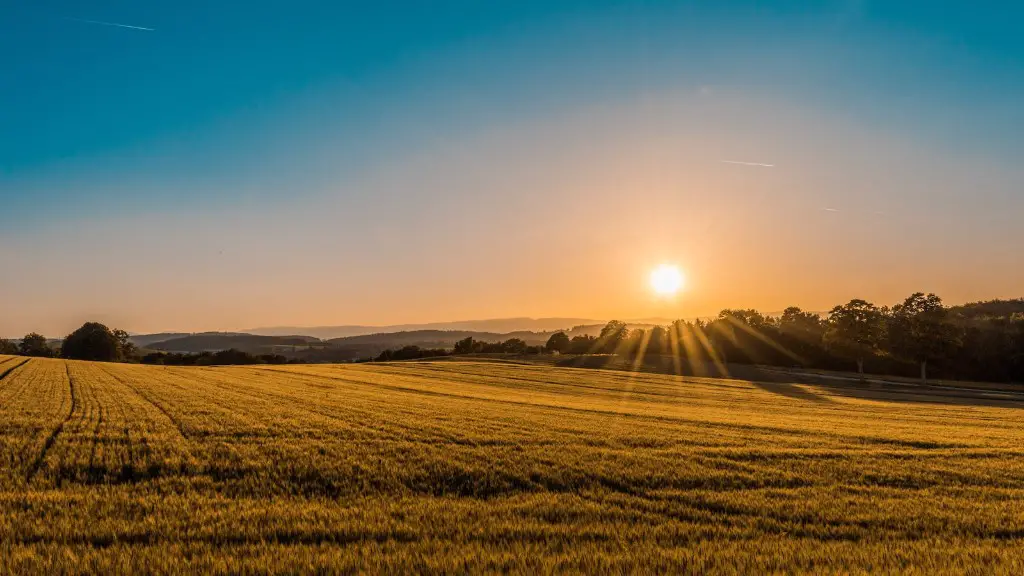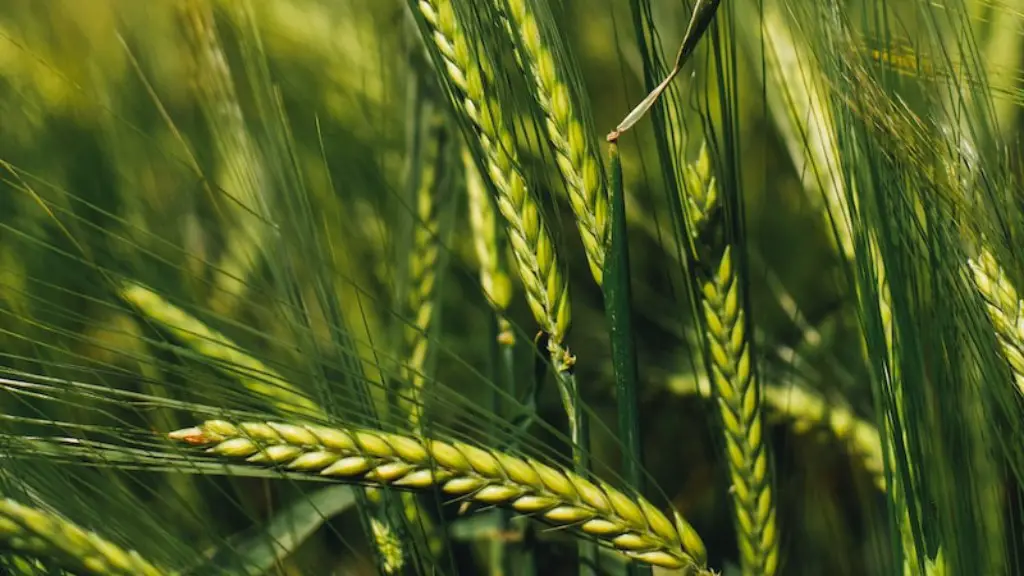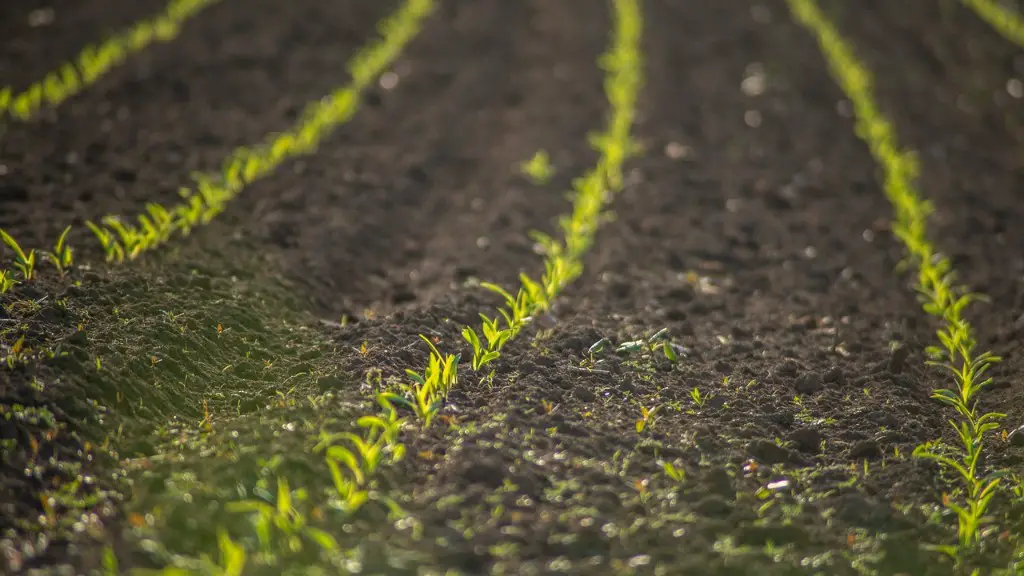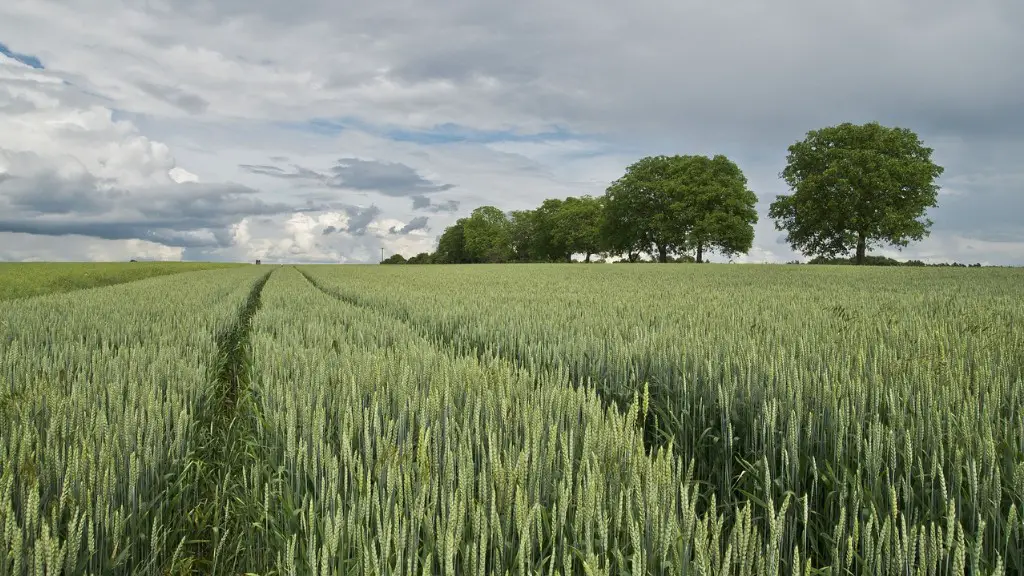Agriculture is a critical factor in the global economy, but it also has some negative side effects. Agriculture can cause soil erosion and the loss of biodiversity, as well as water contamination, air pollution and land degradation. Furthermore, it can also contribute to global climate change and be a source of conflict.
Soil erosion is one of the major negative effects of agriculture. High input farming such as intensive tillage can cause soil to be removed faster than it can be replaced, resulting in decreased fertility and crop yields. In addition, the use of fertilizer and chemicals can also have a destabilizing effect on the soil, making it prone to further erosion.
Loss of biodiversity is another consequence of agriculture. As land is cleared for farming, native species of plants and animals are displaced, leading to a decrease in biodiversity. Moreover, agricultural techniques such as monoculture, which involves planting the same crop over and over again in the same area, makes species more vulnerable to disease spread and pests.
Water contamination from chemicals used in agriculture is a major concern. The runoff from fields containing fertilizers and pesticides can contaminate drinking water sources, making them unsafe for human consumption. Furthermore, this runoff can also contaminate fish and wildlife, leading to a decrease in population numbers.
Air pollution from agricultural activities is also a major issue. Burning of crop residue and use of chemical fertilizers and pesticides are some of the main sources of air pollution in agricultural areas. This can lead to respiratory and other health problems for people living in these areas.
Land degradation due to overgrazing and deforestation has become a major problem in many parts of the world. Overgrazing can cause soil erosion, resulting in the loss of arable land and the inability to grow crops. In addition, deforestation of forests can alter the hydrological cycle, leading to a decrease in water availability.
Agriculture can also be a source of conflict as it is often driven by economic and political factors rather than environmental concerns. This can lead to competition for land between farmers, leading to land disputes and even violence. In addition, it can also lead to disputes between countries, as some are dependent on agricultural products exported from other countries.
Impact on Human Health
Agriculture can also have a negative effect on human health. Fertilizers and pesticides used in conventional farming can have serious health effects, such as skin and respiratory disorders, cancer, and damage to the nervous system. In addition, the increased use of genetically modified organisms (GMOs) is a controversial health issue, as there is a lack of scientific consensus about the health risks of consuming them.
The use of antibiotics in livestock is also a concern, as this can lead to antibiotic resistance in humans. This happens when bacteria become immune to medications and can no longer be treated using traditional methods, creating a serious public health risk.
Furthermore, agricultural workers are often exposed to dangerous chemicals, such as pesticides and insecticides, which can cause respiratory and skin problems, as well as an increased risk of cancer. Workers may also suffer from heat exhaustion and dehydration due to long hours of working in the hot sun.
Finally, migrant workers are often subjected to dangerous working conditions and exploitation. They may suffer from poor pay and poor working conditions, making them vulnerable to ill health and illness.
Impact on Climate Change
Agriculture can also have a negative effect on climate change. Increased emissions of greenhouse gases such as carbon dioxide, methane and nitrous oxide due to the use of fertilizers, the burning of crop residue and deforestation can contribute to global warming. The burning of fossil fuels for tractors, pumps and other farming equipment also contributes to rising levels of greenhouse gases.
In addition, the use of pesticides and fertilizers can increase the rate at which soils release methane, a powerful greenhouse gas. Furthermore, water scarcity due to increased water usage for agriculture can also lead to drought in some areas.
Finally, the disruption of ecosystems due to agricultural activities can also lead to climate change. For example, deforestation for crop production can reduce the overall number of trees capable of absorbing atmospheric carbon dioxide, leading to an increase in atmospheric CO2 levels.
Impact on Water Resources
Agriculture can also have a negative impact on water resources. Increased water usage for irrigation has led to water scarcity in many parts of the world. In addition, the use of fertilizers and pesticides can contaminate groundwater, making it unfit for human consumption.
The runoff of fertilizers and pesticides can also lead to pollution of rivers and streams, leading to algal blooms, fish kills, and other ecological damage. In addition, soil erosion caused by overgrazing and deforestation can lead to siltation of rivers and streams, reducing their capacity for water storage.
Furthermore, the disruption of ecosystems through large-scale farming can also lead to water shortages in some areas. For example, the destruction of wetlands for crop production can reduce the number of areas capable of absorbing floodwaters, leading to increased flooding in downstream areas.
Finally, the diversion of water for irrigation can also result in water scarcity, as water is taken away from local communities for farming. This can lead to decreased access to water for everyday use, as well as an increased vulnerability to droughts in certain regions.
Impact on Food Security
Agriculture can have a negative impact on food security. The use of pesticides and fertilizers can lead to soil degradation, reducing crop yields and making them less nutritious. In addition, monoculture farming can also reduce the variety of crops available, potentially leading to nutritional deficiencies.
The use of GMOs can have a negative effect on food security, as well. Genetically modified crops can often reduce the diversity of crops available, decreasing the availability of nutrient-rich foods. Furthermore, there is also a lack of scientific consensus about the safety of consuming GMOs.
The disruption of ecosystems caused by agricultural activities can also lead to decreased food security. For example, the destruction of forests for crop production can reduce the number of areas capable of providing food for local communities.
Finally, the disruption of traditional farming methods due to increased mechanization can lead to decreased food production. This can occur when farmers switch from small-scale, subsistence farming to large-scale, industrial farming, leading to a decrease in the production of locally-grown food.
Impact on Social and Political Systems
Agriculture can also have a negative impact on social and political systems. The displacement of local farmers due to corporate farming can lead to social unrest, particularly when farmers lack compensation for their losses. In addition, decreased access to food due to agricultural activities can also lead to a variety of social and political issues, such as increased poverty and political instability.
The disruption of traditional farming practices can also lead to cultural changes, as traditional knowledge and skills are lost. Furthermore, increased mechanization of agriculture can lead to job displacement among farm laborers, leading to increased unemployment.
The use of fertilizers and pesticides can also have a negative effect on social and political systems. The contamination of waterways due to runoff of these chemicals can lead to a decrease in access to drinking water and an increase in the number of health problems.
Finally, the displacement of indigenous populations due to large-scale agricultural activities can lead to a loss of cultural identity and increased conflict. This can have a long-term negative impact on social and political systems, making them more vulnerable to disruption.





